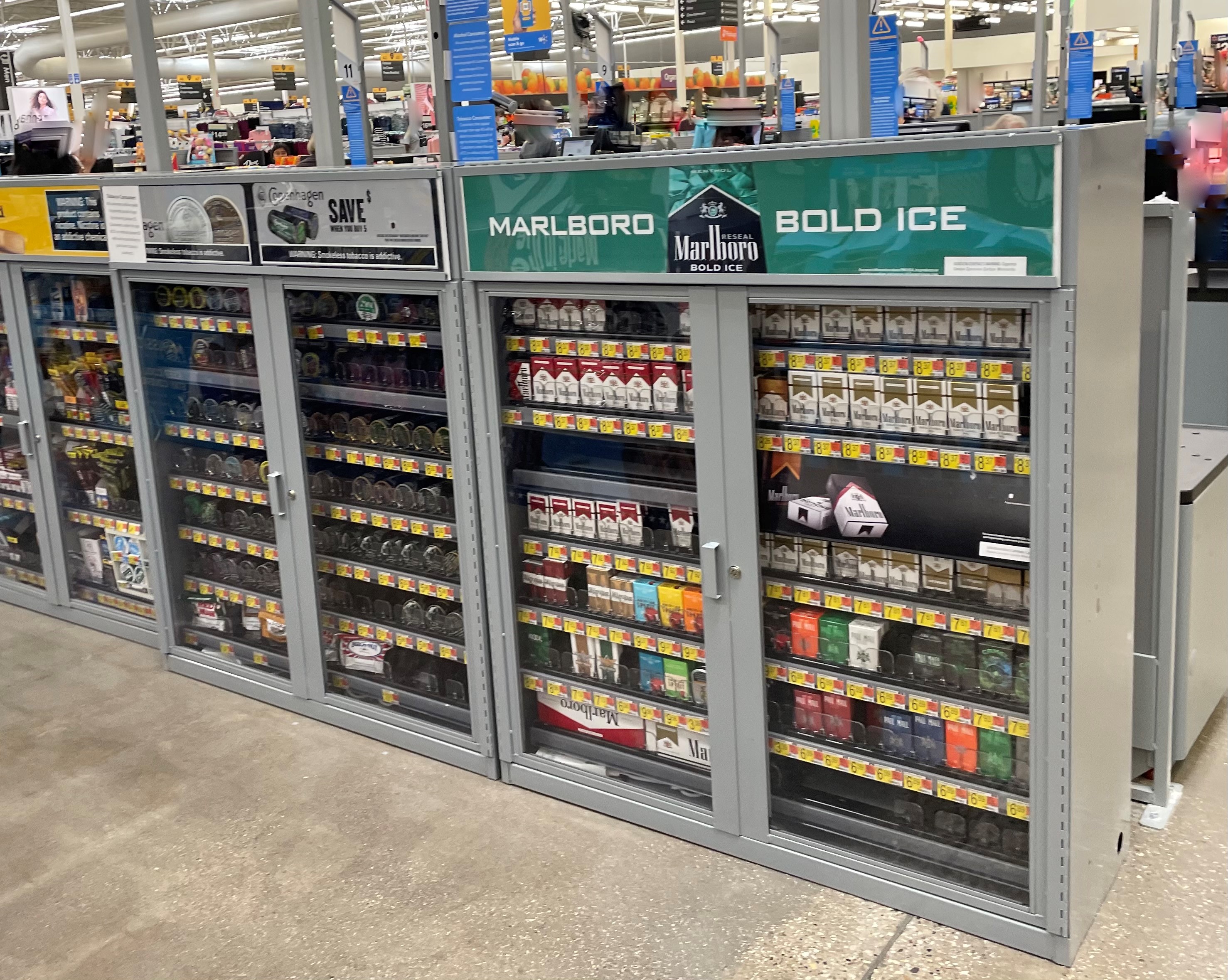 As reported by the Washington Post, Walmart is ending cigarette sales in some of their stores across the U.S., including in Florida, California, Arkansas, and New Mexico. While this is welcome news, and builds off Walmart’s previous voluntary tobacco control efforts to raise its minimum age of sale for tobacco products to 21 and stop selling some flavored e-cigarettes, it stops too short. Walmart operates thousands of stores across the country and the company has not said how many will continue to sell tobacco.
As reported by the Washington Post, Walmart is ending cigarette sales in some of their stores across the U.S., including in Florida, California, Arkansas, and New Mexico. While this is welcome news, and builds off Walmart’s previous voluntary tobacco control efforts to raise its minimum age of sale for tobacco products to 21 and stop selling some flavored e-cigarettes, it stops too short. Walmart operates thousands of stores across the country and the company has not said how many will continue to sell tobacco.
In some stores where Walmart has discontinued tobacco sales, it has added more self-checkout registers, grab-and-go food, or candy in its place, citing the move away from tobacco as a “business decision.” This underscores that tobacco, while profitable for tobacco manufacturers, is not necessarily a money maker for tobacco retailers. Prepared foods and packaged beverages are often much more profitable.[1]
Many Walmart locations also include pharmacies, and continuing to sell tobacco products sends a mixed message to customers about health. Pharmacists and the public overwhelming agree that tobacco has no place in pharmacies and support policies to prohibit the sale of tobacco in pharmacies. In 2014 when CVS announced its decision to stop selling tobacco products, becoming the first retail pharmacy chain in the U.S. to take such action, it made an impact. Following the chain’s removal of tobacco products from its stores, total cigarette purchases in states where CVS holds significant market share declined by 1%, and smokers who had previously purchased their cigarettes exclusively at CVS were up to twice as likely to stop buying cigarettes entirely.[1] However, single corporations do not operate in a vacuum. In a move in the opposite direction, Family Dollar and Dollar General started selling tobacco in late 2012 and early 2013, which increased tobacco retailer density in some regions, even after CVS ended sales.[2] A study conducted in six southeastern states found that this resulting increase in retailer density impeded progress in smoking reduction. [2] This points to the need for local action to limit access to tobacco in other ways, such as by requiring a license to sell tobacco and setting a cap on the total number of tobacco retailer licenses allowed in a jurisdiction.
Walmart’s previous voluntary tobacco control actions came on the heels of the FDA’s request for action and threat of fines for Walmart’s 17% violation rate. The FDA stated that, “Ignoring the law and then paying associated fines and penalties should not simply be viewed as a cost of doing business.” We agree, and we know that tobacco retailer licensing systems, particularly at the local level, allow better monitoring of retailer compliance and allow for a wider range of penalties, including having a retailer’s license to sell tobacco products suspended or revoked for repeated violations.
Walmart’s action to stop selling tobacco in some stores is important, especially for places where governmental action is not yet possible due to preemption or lack of political will. It will likely reduce the overall number of stores that sell tobacco, and when there are more stores that sell tobacco in a community, tobacco use rates are higher – youth are more likely to start smoking and people who smoke have a harder time quitting.
However, while voluntary corporate action like Walmart’s is welcome and can make a difference, governmental policy can have a bigger impact and reach, and can better target existing disparities in tobacco retailer density. State and local governments do not need to wait for corporations to do the right thing—nor should they. For example, some state and local governments have made tobacco-free pharmacies a reality: 45 locations in California, over 200 locations in Massachusetts, 4 locations in New York, and 1 location in Minnesota –as well as the states of Massachusetts and New York –all have passed policies that prohibit the sale of tobacco in any pharmacy. Learn more about tobacco-free pharmacy policies, and other ways to reduce retailer density that also can reduce disparities, like prohibiting tobacco retailers from locating near schools, or setting caps on the number of tobacco retailers that can operate in a given geographic area.
It’s important to keep the pressure on corporations to do more AND keep the pressure on federal, state, and local government to take steps to make these and more comprehensive tobacco control policies a reality across all communities and for all retailers.


